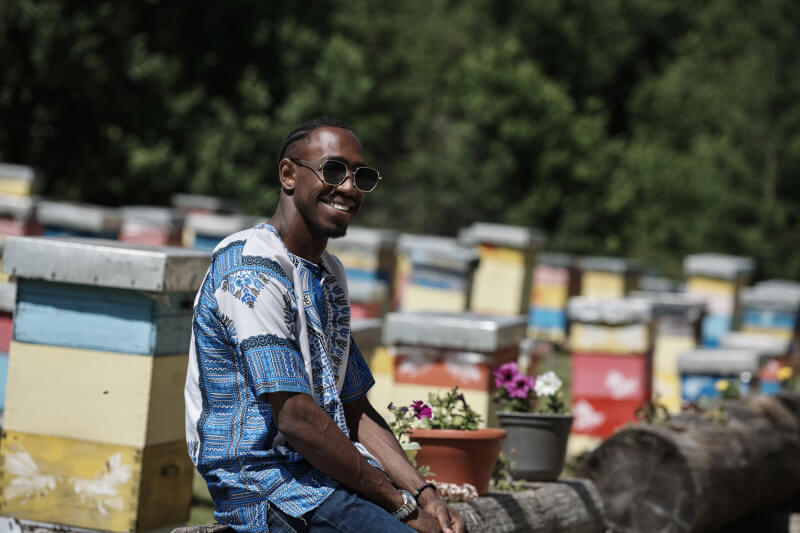While western culture, particularly the U.S., often finds the idea of cousin marriages unsettling due to concerns surrounding inherited birth issues, the historical and scientific narratives tell a different story. It’s time to demystify these beliefs and give the African audience the intriguing truths behind this practice.
Historical Shifts in Cousin Marriages
Cousin marriages have a long-standing history, with about 80% of human unions being between first or second cousins. However, the winds of change started blowing during the mid-19th century. Prominent figures like Charles Darwin, author of Natural Selection, even married his first cousin. But by the latter half of the 19th century, spurred on by the U.S.’s post-Civil War drive for more government involvement in public welfare, states began imposing bans on cousin marriages. Interestingly, these bans often targeted immigrants and the less privileged, painting them as easy targets. While England never placed a ban, the U.S. made significant strides, with Texas being the last to outlaw it in 2005.
The Genetic Debate: Is There Truly a Risk?
Many fear that cousin marriages amplify the risk of inherited disorders in offspring. And while a study found that infants from British-Pakistani communities, where cousin marriages are prevalent, were twice as likely to have severe birth defects, the increase in risk is comparable to the difference between a woman having a child at 40 versus at 30.
Recent data indicate that disorders like spina bifida and cystic fibrosis only see a marginal rise in risk between 1.7% to 2.8% in cousin marriages compared to unions between unrelated individuals. Thus, the belief that cousin marriages are invariably harmful is slowly fading.
The Intricacies of Cousin Relationships
When discussing cousin marriages, one cannot overlook the distinctions between “cross-cousins” and “parallel cousins.” Cross-cousins have parents who are opposite-sex siblings, whereas parallel cousins have same-sex sibling parents. In cultures that emphasize cross-cousin marriages, there’s often an ancestral taboo rooted in complex familial relationships. However, in today’s cousin-marriage practicing societies, such nuances rarely play a role.
Where Does the World Stand Today?
Across the globe, cousin marriages range between 10% to 50%. A significant portion of these unions occur in the Islamic cultures of North Africa, West, and Central Asia. As more data surfaces, highlighting the minimal risks associated with such marriages, they’re slowly regaining acceptance, even in the U.S. However, the cultural stigma persists, with many couples facing ostracization and often advising their children to withhold their familial connections for fear of prejudice and ridicule.
Fun Fact
Did you know that some of history’s most notable figures tied the knot with their first cousins? You might be surprised to learn that Christopher Robin Miln, the genius behind Winnie the Pooh, said “I do” to his first cousin Leslie. But that’s not all! Literary giant Edgar Allan Poe was head over heels for Virginia Clemm, marrying her when she was just a tender age of 13 and he was 26.
Their love story was so intense that Poe’s grief over her death inspired some of his most haunting works like “The Raven” and “Annabel Lee.” In fact, Poe’s devotion was so deep that he was found on many winter nights, sitting by her grave, almost frozen in the snow. And if you’re looking for modern tales, former New York City Mayor Rudy Giuliani also entered this club by marrying his second cousin once removed, Regina Peruggi. So, the next time you dive into your favorite classics or discuss historical romances, remember to sprinkle these fun facts into your conversation! Your friends might just be as intrigued as you are.
The Bright and Dark Sides of Cousin Marriages
Historical Prevalence and Cultural Acceptance
Pros:
Throughout history, cousin marriages have been a widespread practice. These unions were often formed to solidify family bonds, maintain wealth and assets within the family, or strengthen political ties. Many societies, especially non-Western ones, have embraced cousin marriages as a norm. This historical prevalence shows that such marriages have deep cultural and societal roots, which means they are seen as a tried-and-true practice in many places.
Cons:
Despite its historical prevalence, the growing awareness about potential health risks associated with close familial marriages has made many societies, especially in the West, wary of such unions. As societies have evolved and mingled, there’s an increased understanding of genetics, leading to concerns about the offspring of such unions having a higher risk for certain genetic disorders.
Genetic Implications and Health Concerns
Pros:
The increased risks associated with cousin marriages are often exaggerated. Recent studies show that the likelihood of birth defects in children of first cousins is only slightly higher than in the general population. To put it in perspective, the risk is similar to that of a woman giving birth in her 40s compared to her 30s. This indicates that while there’s an increased risk, it might not be as alarming as many think.
Cons:
There’s no denying that marrying a close relative can lead to an increased chance of offspring inheriting genetic disorders. Especially in communities where cousin marriages are a repeated practice over generations, the accumulation of genetic abnormalities can become more pronounced. This is particularly true for recessive genetic conditions where both parents carry a copy of the detrimental gene.
Societal Perception and Stigma
Pros:
In many societies, marrying within the family is seen as a way to uphold cultural values, maintain family honor, and ensure a certain level of compatibility between spouses. Since families already know each other, it can lead to fewer surprises in terms of family values and traditions. Additionally, some religious texts and doctrines do not prohibit or even endorse cousin marriages, making them more acceptable in certain faith-based communities.
Cons:
In several Western countries, there is a significant societal stigma attached to cousin marriages. People in such relationships often face ostracization, judgment, or even legal barriers in places where such marriages are prohibited. This societal pressure can lead to mental and emotional stress for the couple, affecting their overall well-being and the health of their relationship.
Historical and Modern Notables
Pros:
Many well-known figures throughout history, from literary giants like Edgar Allan Poe to renowned scientists like Charles Darwin, married their cousins. Their prominence and contributions to society serve as examples that such relationships can be successful and productive. This can help reduce some of the stigma attached to cousin marriages.
Cons:
Despite some historical figures having successful cousin marriages, their stories can sometimes be overshadowed by the controversies surrounding their choices, detracting from their actual achievements. Additionally, when modern figures, like Rudy Giuliani, marry their cousins, it can reignite debates and controversies, keeping the topic contentious.
The Changing Landscape of Cousin Marriages
While scientific research and historical patterns show that cousin marriages are not as problematic as some might believe, societal perceptions and biases still cast a shadow on these unions. It’s crucial to approach this topic with an open mind and be receptive to evolving understanding, especially for Africa Nova’s enlightened readership.




